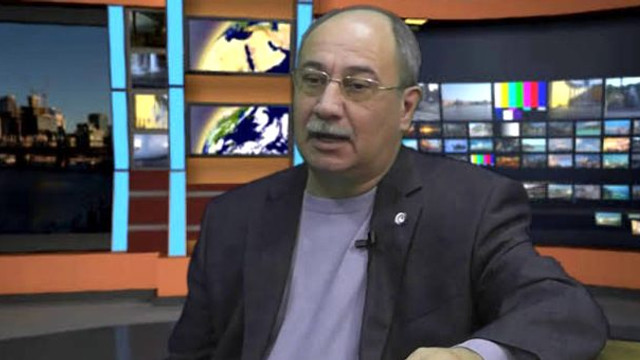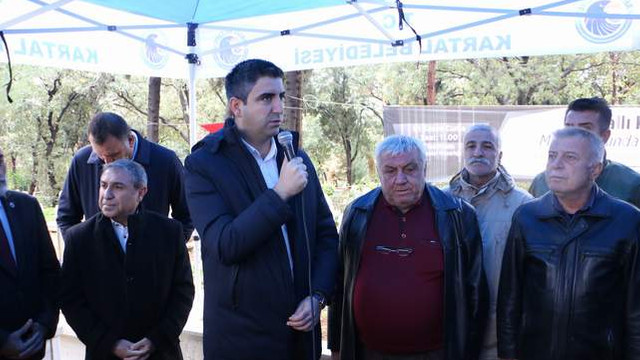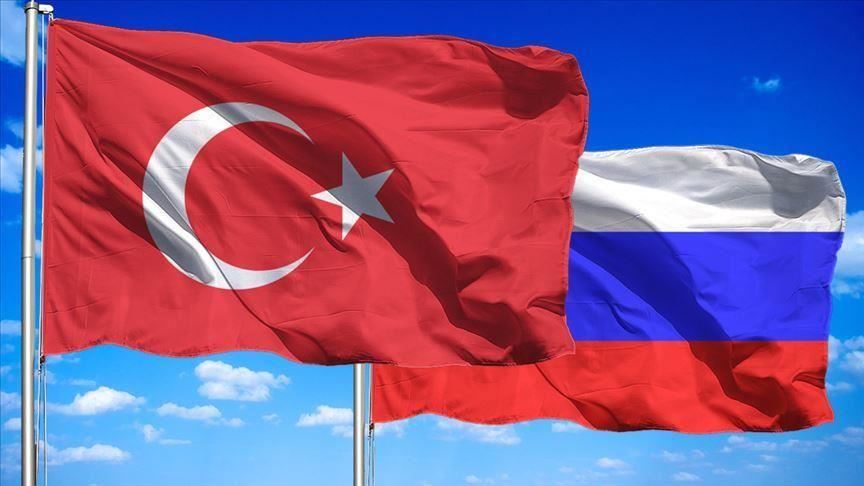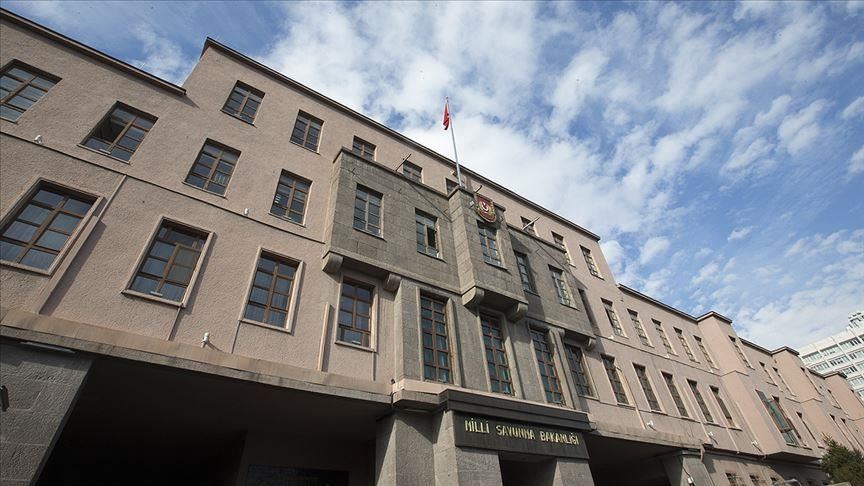ΤΟΥΡΚΙΚΕΣ ΕΙΔΗΣΕΙΣ!..
İsrail harekete geçti: Akdeniz‘de Türkiye‘ye gözdağı!
Türkiye’nin Akdeniz’deki faaliyetlerine karşı pek çok yaptırım uygulayan Batılı devletler, yeni bir ittifak sağladılar. İsrail liderliğinde gerçekleşecek “Mavi Bayrak” Tatbikatı, Türkiye’nin bölgedeki faaliyetlerine yönelik bir gözdağı olma özelliğini de taşıyor.

F-35’lerin dahil olacağı tatbikatta tam olarak 1000 İsrail askeri yer alacak. İsrail Hava Kuvvetleri Sözcüsü söz konusu tatbikat ile ilgili, “Savaş egzersizleri ve ileri teknoloji ile çeşitli tehditlere karşı uçuş performansı denenecek“ dedi.
İki yılda bir düzenlenen Mavi Bayrak Tatbikatı’nın ilki 2017 yılında gerçekleşmişti. 2017 yılındaki tatbikata katılım sağlayan Hindistan ve Polonya, 2019 tatbikatına dahil olmadı.

Mavi Bayrak Tatbikatı, 2017
Akdeniz, enerji rezervleri ve stratejik konumu itibariyle bölge ülkelerinin söz sahibi olmak için yarış içerisine girdiği bir konuma sahip. Bölge ağırlıklı olarak KKTC ve GKRY ekseninde ittifaklara sahne oluyor.
Sözcü Kalın ABD’li heyet ile görüştü
Cumhurbaşkanlığı Sözcüsü İbrahim Kalın, ABD Temsilciler Meclisi heyeti ile Dolmabahçe Çalışma Ofisi’nde bir araya geldi. Görüşmede, Türkiye’nin terör örgütleri DEAŞ ve PKK/PYD/YPG’ye karşı yürüttüğü haklı mücadelenin kararlılıkla devam edeceği belirtildi.
İlişkilerin geliştirilmesi yönünde karşılıklı irade beyanlarının yapıldığı görüşmede, Türkiye’nin terör örgütleri DEAŞ ve PKK/PYD/YPG’ye karşı yürüttüğü haklı mücadelenin kararlılıkla devam edeceği belirtildi.
Görüşmede, aşırıcılığın küresel bir sorun olduğu ve uluslararası toplumun bu konuda daha fazla çaba sarf etmesi gerektiği de vurgulandı.
3.
YPG’den alçak saldırı! Türkiye’den peş peşe açıklamalar
Barış Pınarı Harekatı ile teröristlerden arındırılan Şanlıurfa’nın karşısında bulunan Suriye’nin Tel Abyad kentinde bomba yüklü araçla düzenlenen saldırıda 13 sivil hayatını kaybetti, en az 20 kişi yaralandı. Saldırının ardından Türkiye’den peş peşe sert tepkiler geldi.
4.
Northrop Grumman, uzay aracını gönderdi
Uzay teknolojisi şirketi Northrop Grumman, Uluslararası Uzay İstasyonu’na uzay aracını gönderdi. Amerika merkezli dev uzay teknolojisi şirketi Northrop Grumman, ABD’nin Virginia eyaletinin Wallops Adaları bölgesinde yer alan NASA’nın kalkış tesisinden Uluslararası Uzay İstasyonu’na kaynak taşıyan ‘Cygnus’ isimli uzay aracını gönderdi.
Kalkış anını ölümsüzleştirmek isteyenler uzun süre tesislerde bekledi. Ellerin deklanşörde hazır beklediği grup, roketin kalktığı an makinelere sarıldı.
5.
Dışişleri Bakanlığı’ndan Mali’ye başsağlığı
Dışişleri Bakanlığı, Mali’nin kuzeydoğusunda bir askeri karakola yönelik gerçekleştirilen terör saldırısında hayatını kaybedenler için başsağlığı mesajı yayımladı.
6.
‘Terör örgütleri üzerinden bölgeyi dizayn etmeye çalışıyorlar‘
AK Parti Genel Başkan Vekili Kurtulmuş, “Terör örgütleri üzerinden bölgeyi dizayn etmeye çalışıyorlar ancak bu dönemde Türkiye, eski Türkiye değil. Kararlı ve güçlü bir şekilde yolumuza devam ediyoruz. Bu oyunları bozacağız ve inşallah bu coğrafyayı yeniden esenlik yurdu haline getireceğiz” dedi.

“AK Parti, Türkiye’nin geleceğini kurmaya niyet etmiş bir partidir. Bu anlamda AK Parti, Türkiye’nin geleceğidir. Partimizin temel özelliği ise bir zümrenin, bir çıkar çevresinin, elit bir kesimin, bir coğrafyanın ya da herhangi bir grubun değil, 82 milyon Türkiye’nin partisidir. Hatta daha ileriye götürürsek, gönül coğrafyamızın, dünya mazlumlarının ve gariplerinin partisidir. Bunları içselleştirerek ne manaya geldiğini bilerek çalışmaya devam ediyoruz.”
“BÖLGEYİ TEKRAR DİZAYN ETMEK İÇİN HAREKETE KOYULDULAR”
Kurtulmuş, emperyalistlerin Türkiye-Suriye, Suriye-Irak, Ürdün-Lübnan sınırlarını cetvel ve pergellerle bölüp parçaladığını anlattı.
Aynı zihniyetin, hiçbir gerçekliği olmayan ve tarihi bir gerçekliğe dayanmayan sınırlarla bölgeyi hallaç pamuğu gibi dağıttığını vurgulayan Kurtulmuş, şöyle devam etti:
“Hani, ‘su uyur düşman uyumaz’ derler ya, 100 sen sonra bölgeyi tekrar dizayn etmek için harekete koyuldular. Dün Fransız’ı, İngiliz’i ve İtalyan’ı Anadolu topraklarını işgal ederken kendi ordularıyla geldiler. Şimdi ise ellerine silah tutuşturdukları çapulcu terör örgütleriyle geldiler. Amaç aynı amaç. O zaman Osmanlı cihan devletini bölmek isteyenler şimdi Türkiye Cumhuriyeti Devleti’nin bölüp parçalamak dahil olmak üzere bu coğrafyayı yeniden dağıtmak ve parçalamak için geldiler.Terör örgütleri vasıtasıyla yaptıkları şey bütün şehirlerin demografik yapılarını değiştirmekti. Önceden Tel Abyad, yüzde 90’ı Arap bir yerdi. Tel Abyad şimdi tamamı Kürt olan bir yer haline geldi.” diye konuştu.
Tel Abyad’da teröristlerin pazar yerine saldırdıklarını üzüntüyle öğrendiğini belirten Kurtulmuş, “10’un üzerinde sivil insanın öldüğünün az önce salona girerken haberini aldım. Terör örgütleri üzerinden bölgeyi dizayn etmeye çalışıyorlar ancak bu dönemde Türkiye, eski Türkiye değil. Kararlı ve güçlü bir şekilde yolumuza devam ediyoruz. Bu oyunları bozacağız ve inşallah bu coğrafyayı yeniden esenlik yurdu haline getireceğiz.” değerlendirmesinde bulundu.
Toplantıya, Kurtulmuş’un yanı sıra AK Parti Afyonkarahisar Milletvekilleri Veysel Eroğlu, Ali Özkaya, İbrahim Yurdunuseven, Afyonkarahisar Belediye Başkanı Mehmet Zeybek, İl Genel Meclisi Başkanı (İGM) Burhanettin Çoban, AK Parti İl Başkanı Hüseyin Sezen ve çok sayıda partili katıldı.


 8.
8.Azeri milletvekili: Türklerle aramızda kan bağı yok

Türk insanının her fırsatta yardımına koştuğu Filistin’în yöneticileri, Arap ülkeleri de bunlara dahil oldu. Türkiye’ye destek verenler ise soy bağımızın olduğu Türk dünyası ülkeleriydi. Ancak ‘Tek millet, iki devlet’ sloganını birlikte kullandığımız Azerbaycan’da Araz Alizade isimli bir milletvekili, yaptığı skandal çıkışla tüm dikkatleri üzerine çekmeyi başardı.
“TÜRKLERLE HİÇBİR KAN BAĞIMIZ YOK”
Ülkesinde yayınlanan bir televizyon programına konuk olan Alizade, “Osmanlı Ordusu, para karşılığında Bakü’ye geldi ve bizi kurtardı. Azerbaycanlılarla Türkler arasında hiçbir kan bağı yoktur” ifadelerini kullandı.
9.
Kuva-yi Milliye kahramanı Kartallı Kazım dualarla anıldı
Nazım Hikmet’in şiirlerinde ‘Kartallı Kazım’ olarak sembolleştirdiği, Kuva-yi Milliye Kahramanı İbrahim Göleber, Kartal Belediyesi’nin organizasyonuyla, 59. ölüm yıl dönümünde mezarı başında anıldı.

“Ne Mutlu Bizlere ki…”
Kartallı Kazım’ın Yayalar Mezarlığı’ndaki kabri başında gerçekleşen törende konuşan Kartal Belediye Başkanı Gökhan Yüksel, Kartallı Kazım’ın ilçe için bir gurur olduğunu ve isminin yaşatılmaya devam edeceğini belirterek; “Geçtiğimiz günlerde İstanbul’un önemli merkezlerinde olduğu gibi, Kartal’da da büyük bir Cumhuriyet coşkusu yaşadık. Bugün ise, aramızdan ayrılışının 59. yılında, Kartallı Kazım’ı anıyoruz. Ne mutlu bizlere ki, Kartal’ımızın bir Kuva-yi Milliye kahramanı var. Mekânı cennet olsun. ‘Kartallı Kazım’ ismini ilçemizde yaşatmaya devam edeceğiz” ifadelerini kullandı.
Törenin sonunda, Kartallı Kazım’ın ruhuna Kur’an tilaveti gerçekleştirildi.
10.
ANALYSIS – Turkey and Russia: Back to where we left off 100 years ago
Turkey’s NATO ally — the ally that enabled Turkey’s membership in the organization — is culpable for allowing the Russians to settle on Turkey’s southern flank, opening a new era in Turkey-Russia relations

ISTANBUL
“The Ancient Capital is Moscow; and the Mother of Russian Cities is Kiev. Petersburg, or Saint Petersburg, or Peter (which is the same thing) belongs properly to the Russian Empire. And Tsargrad, Konstantinograd (or, as people say, Constantinople), belongs by right of inheritance. We will not expatiate further about that.”
— Andrei Bely, Petersburg, “Prologue”
The two began to eye each other warily in the 1600s, across the Sea of Azov’s waves and over Mt. Elbrus’ snowy crests in the Caucasus Mountains. Eventually the Ottoman and Russian empires would go to war a dozen times over more than 300 years as Russia pressed its strategic imperative: warm water ports and unfettered access to the world’s seas. Russia usually emerged the victor thanks to Peter the Great’s early modernization reforms, but Selim III and Mahmud II followed suit later. In the 19th Century, Great Power alliances brought the Ottomans into the concert of Europe after the Crimean War, and only Great Power politics prevented the Russians from occupying Istanbul during the 1877-1878 war.
World War I brought about the long anticipated socio-political collapse of the Russian Empire, revolution, and the Union of Soviet Socialist Republic’s (USSR) emergence. The Ottoman Empire, after barely maintaining its sovereignty during World War I through German help, the brilliance of an officer named Mustafa Kemal, and massive sacrifices by its entire society, morphed into the Republic of Turkey in 1923.
Between the wars, Turkey and the USSR remained friendly but distant. By the late 1930s, with Stalin’s five-year plans wrenching the Soviet economy into heavy industry and productive capacity, the USSR revived its military strength. World War II’s result made it a Great Power, and once again Turkey felt the ancient threat to its sovereignty based in Russia’s primordial covetousness towards the Bosphorus and the Dardanelles. Geopolitics made Turkey an asset in U.S. eyes, and Turkey’s membership in NATO was eventually secured in order to provide the offshore balancer that Turkish statesmen had desired for the previous 70 years.
Cold War developments in the Turkish-Russian relationship
Cold War historians long ago identified an interesting fact: Turkey’s inclusion in NATO was more a matter of strategy rather than actual Soviet threat. Yes, Stalin’s diplomatic notes to Turkey in 1945-1946 were disturbing, but in the end the USSR was never mobilized to invade Turkey. As Stephen Kotkin’s recent studies on Stalin have made clear, the Bolsheviks, and Stalin specifically, were opportunists. Long-term strategy, other than that provided by Marx, was not the stuff of Soviet thought. Towards the conclusion of World War II, Stalin thought he spied an opportunity to reclaim territory conceded to Turkey during a moment of Russian weakness in the 1920s, but U.S. attention to the new global geopolitical game rendered Stalin’s initiative futile.
In 1950, Turkey’s elections finally became democratic, but state institutions remained dominated by the same social groups — the military, the bureaucracy, the intelligentsia — that had largely dictated political decisions since the Tanzimat Era. This set the stage for a turning point in Turkish history that Russia has not achieved even to this day: industrial development under democratically elected governments.
Since the 1960s, Turkish industrialization has presented a new dimension in the relationship with its northern neighbor. Haltingly at first, but gaining steam in the 1990s, Turkey is on its way to becoming an industrialized society, and now mass-produces items as diverse as blue jeans and armed drones. Russia remains dependent on resource extraction, but its massive reserves provide the financial resources to maintain the military and scientific sectors developed during the Soviet era. Russia also possesses nearly twice the population of Turkey, even if Russian population growth has stalled.
Syria, Russia, and Turkey’s new regional security role
The above summary brings us to the current situation, with Russia as Syria’s de facto owner and the primary reason why the Assad regime still exists. Turkey, for its part, asserts its blossoming modern military capacities in order to protect its citizens and security forces from violent, ideologically-driven militant groups such as Daesh and the PYD/PKK, and to protect northern Syria from both Damascus and those same terrorist groups. The areas under Turkey’s responsibility also provide a safe haven for Syrian refugees to return to. Can the New York Times (NYT) explain this situation’s implications to its readers? Because the NYT has shed all pretense of objectivity in regard to issues concerning Turkey, I will try to do so instead.
The most disturbing aspect of Russia’s involvement in Syria is the fact that the U.S. allowed Russia to make a tactical move unprecedented in the Turkish-Russian rivalry’s history: opening a second front to Turkey’s south. Russia has desired control of the Turkish straits for 400 years, but up to this point was frustrated. Historically, the Russian threat to Turkish sovereignty came only from the north, whether through the Balkans or the Caucasus region. Since the USSR’s dissolution, the only shared border was over the Black Sea, the first time since the 1600s that the Ottoman-Turkish state did not possess a land border with Moscow. Post-Cold War, Moscow continued to devour slices of its southern neighbors — Abkhazia and South Ossetia in Georgia, the Crimea and the Donbass Region in Ukraine — without once again pressing against Turkey’s borders.
However, once Bashar al-Assad invited the Russians to take a more substantial and permanent role in Syrian politics (when U.S. President Barack Obama failed to assert U.S. strength there), Russia gained the opportunity to threaten Turkey from a new direction. Turkey’s NATO ally, the ally that enabled Turkey’s membership in the organization, is culpable for allowing the Russians to settle on Turkey’s southern flank, opening a new era in Turkey-Russia relations.
Russia’s presence in Syria offers challenges to the Turkish state that have not been encountered any time in the past 100 years, and Moscow is well aware of its advantage. On the other hand, Turkey does have some leverage vis-à-vis Moscow. Most important is the fact that Turkey is a regional, historical, and Sunni Muslim power, while Russia’s position in Syria stems purely from the political juncture. In other words, Russia will always have to address questions about the legitimacy of its activities in Syria, and the fact that a majority of Syria’s population despises Russia’s role in facilitating the Assad regime’s survival.
Second, Turkey is a democracy and openly supports the democratic aspirations of the region’s peoples. This is why regional states with political systems as disparate as Saudi Arabia, Egypt, and Israel are unhappy with Turkey’s growing regional prominence. They understand that an industrializing Muslim democracy holds wide appeal in a predominantly Muslim region. That is a threat to Egypt’s military dictatorship, Saudi Arabia’s monarchy, and Israel’s domination of the Palestinians in the same way that it is a threat to Bashar al-Assad’s Baathist regime.
Not coincidentally, Russia cultivates good relations with the authoritarian regimes in Turkey’s region because of the shared anti-democratic sentiments. In other words, the front in northern Syria is, in fact, the front between democratic and non-democratic regional forces. The fact that America’s political classes have not understood this reality simply illustrates how little ability the U.S. has to understand regional political dynamics in places far away, and how easily the U.S. media manipulates American public opinion about foreign policy issues with distorted or false information.
The Turkish-Russian military balance
A further implication of Russia’s position in Syria and the U.S. abdication of responsibility in the Eastern Mediterranean is that Turkey again takes on security issues that the U.S. had taken care of since 1947. [1] Foremost is Russia’s political and military encroachment on the entire region, another 400-year issue. In both Turkey and Russia, the effort to become modern, industrial societies still continues, but Turkey is the more truly industrialized of the two. In contrast, Russia retains military superiority because of greater potential troop numbers, advanced weapons technology (a continuation of the USSR’s military capabilities), and the key aspect of modern military might: nuclear weapons.
Here again is an issue affected by U.S. incomprehension of conditions in the world outside of its borders. Recently, the NYT has tried to incite hysteria [2] about the potential of Turkish nuclear weapons, the same tired theme of “the Islamic Bomb,” which has been around since the 1990s when Pakistan revealed to the world that it had nuclear weapons (as a balancer to India’s development of the same capacities).
Despite the hyperbolic press attention and rhetoric, realist political scientists (John Mearsheimer, for example) will explain that nuclear weapons are actually a force for peace because they render warfare between states owning them less likely. This is why the U.S. and the USSR never fought directly. This is also why India and Pakistan, despite serious continuing tensions and even cross-border violence, are careful to avoid allowing any situation to spiral out of control (as was illustrated again earlier this year).
Implications for NATO
As long as Turkey does not have nuclear weapons and its NATO partners remain unwilling to fulfill their obligations as contractual allies, Russia’s position in Syria means that NATO, an organization devoted to preserving democracy in Europe, will remain weak on its SE flank. Subsequently, Russia will maintain a military and negotiating advantage in Syria, making Turkey’s efforts much more difficult. This problem is compounded by press rumors to the effect that the U.S. is reassessing its several dozen nuclear weapons stockpiled in Incirlik AFB; such rumors lessen Incirlik’s deterrence value and inspire Russian ambitions. Unfortunately, recent events have revealed the U.S. as a wavering superpower, no longer sure of what it believes in, uninformed about the issues and societies that its foreign policies affect, and no longer committed to exerting military force in support of democratic social forces under violent threat from oppressive regimes. Harry Truman rolls in his grave.
NATO vulnerability does not derive solely from Turkey’s fundamental military disadvantage against Russia because the internal debates and tensions currently plaguing NATO over events in Syria also continue. The U.S. has yet again supported a violent militant organization with weapons, training, money, and aid under the excuse of fighting against a greater evil. We all know the long-term effects of U.S. aid to Afghan militants during the 1980s, but the U.S. political leadership — neither Democratic nor Republican — has understood the lesson. Only time will reveal what disasters U.S. support for the YPG/PYD/PKK will result in.
Even worse, NATO support for the PYD/PKK is not limited to the U.S. The PKK enjoys great freedom of movement, organization, and public profile in several E.U. states that are also NATO members. France, for example, even provides the concrete that the PYD/PKK uses to build the fortifications that Turkey has to waste munitions on while destroying. The unwillingness of those European NATO members to act against the PKK presence in their own societies, and to cease tolerating an organization that they long ago officially designated “terrorist,” will continue to blight the alliance’s reputation, ability to cooperate, and effectiveness.
And observers wondered why Russian President Vladimir Putin appeared so cheerful and relaxed in Sochi?
* Opinions expressed in this article are the author’s own and do not necessarily reflect the editorial policy of Anadolu Agency.
[1][https://www.aa.com.tr/en/analysis-news/-turkey-s-new-regional-security-role-70-years-late/1350816 fbclid=IwAR01b0OjQH5q6F3_f2POpl2_8TDUnRspsc2GOywfFK7EEJdfBKlWt12NX_8]
[2][https://www.nytimes.com/2019/10/20/world/middleeast/erdogan-turkey-nuclear-weapons-trump.html]
2nd Turkey-Russia talks on Syria completed in Ankara
Tactical, technical issues on implementation of deal reached between Turkey, Russia discussed, says Turkish Defense Ministry

The second talks between Turkish and visiting Russian military delegations on the implementation of the Sochi deal on Syria ended on Saturday, said Turkey’s National Defense Ministry.
“Within the framework of the agreement reached with the Russian Federation in Sochi [Russia] on October 22, 2019; the negotiations held between November 1-2 with the second Russian Military Delegation, which came to [Turkish capital] Ankara to discuss the tactical and technical issues, have been completed,” the ministry said in a statement.
The first Russian delegation visited Turkey on Oct. 28 after Ankara and Moscow reached a deal on Oct. 22 under which YPG/PKK terrorists would pull back 30 kilometers (18.6 miles) south of Turkey’s border with northern Syria within 150 hours and security forces from Turkey and Russia would conduct joint patrols there. The 150-hour period ended on Tuesday.
The deal came after Turkey launched Operation Peace Spring on Oct. 9 to eliminate terrorists from northern Syria east of the Euphrates River in order to secure Turkey’s borders and ensure safe return of Syrian refugees. The operation was also meant to safeguard Syria’s territorial integrity.
12.
Yüzde 100 yerli ve milli ‘sniper’ üretildi!
Kırıkkale’de faaliyet gösteren özel bir şirkete ait savunma sanayi fabrikasında yüzde 100 yerli ve milli imkanlarla prototip üretimi gerçekleştirilen ‘sniper’ (Keskin nişancı tüfeği), Cumhurbaşkanı Recep Tayyip Erdoğan’a hediye edilecek.

Cumhurbaşkanı Recep Tayyip Erdoğan’ın direktifleriyle ‘sniper’ üretiminin gerçekleştirildiğini kaydeden şirketin Genel Müdürü Emrah Hamzaoğlu, fabrikada ilk üretilen ‘sniper’ı Cumhurbaşkanı Erdoğan’a hediye edeceğini söyledi.

Hamzaoğlu, “Bu silahı ben Cumhurbaşkanımıza hediye etmek istiyorum. Onun direktifleri doğrultusunda biz hareket ettik. Bakanlarımıza, ordumuza ve emniyet teşkilatımıza yani bu silah Türkiye’de yok. Bu silah tamamen Türk mühendislerimiz tarafından başarılı bir şekilde ortaya çıktı. Bunda Türk mühendislerin çok büyük bir etkisi var. Kırıkkale gibi bir şehirde 3 Türk mühendisle bunu başardık” dedi.

“AKINDYNOS“
-/-


